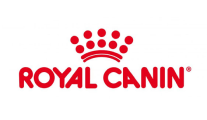- Hill’s Prescription Diet i/d Digestive Care Wet Cat Food is specially formulated by Hill’s nutritionists and veterinarians to support your cat’s digestive health.
- Clinically shown to help settle digestive upsets in cats and improve stool quality
- Highly digestible formula to support easy nutrient absorption
- Soluble and insoluble fibers (including prebiotic fiber) to promote regular bowel movements and help balance digestive function
- High levels of electrolytes & B vitamins help replace nutrients lost from digestive upset
Hill's Prescription Diet i/d Digestive Care with Chicken Wet Cat Food
 Why don't we show the price? Sometimes the manufacturers do not allow us to show our price. Don't worry; you'll be able to see the price in checkout before you decide to buy it.
Why don't we show the price? Sometimes the manufacturers do not allow us to show our price. Don't worry; you'll be able to see the price in checkout before you decide to buy it.
Prescription required.
Learn more
Save $6 by joining PetPlus
 Why don't we show the price? Sometimes the manufacturers do not allow us to show our price. Don't worry; you'll be able to see the price in checkout before you decide to buy it.
Why don't we show the price? Sometimes the manufacturers do not allow us to show our price. Don't worry; you'll be able to see the price in checkout before you decide to buy it.
Prescription required.
Learn more
Save $6 by joining PetPlus

- Hill’s Prescription Diet i/d Digestive Care Wet Cat Food is specially formulated by Hill’s nutritionists and veterinarians to support your cat’s digestive health.
- Clinically shown to help settle digestive upsets in cats and improve stool quality
- Highly digestible formula to support easy nutrient absorption
- Soluble and insoluble fibers (including prebiotic fiber) to promote regular bowel movements and help balance digestive function
- High levels of electrolytes & B vitamins help replace nutrients lost from digestive upset











































